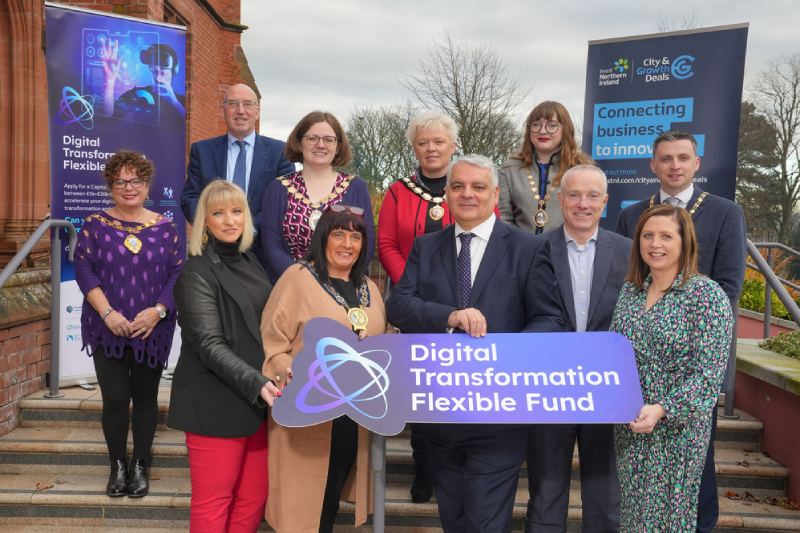
Commencement of the Digital Transformation Flexible Fund Will Encourage Digital Innovation
- Business
- December 5, 2023
Funding will be provided to social enterprises, small and micro businesses, and other organizations in Northern Ireland to help them fulfill their goals of accelerating digital transformation.
The official launch of the Digital Transformation Flexible Fund (DTFF) took place last week at a special event held in Queen’s University’s Riddel Hall. The program’s ability to foster digital innovation and eliminate financial barriers that keep small and microbusinesses from integrating state-of-the-art digital technology to revolutionize their operations was demonstrated at the event.
The £7.5 million funding program is exclusive to Northern Ireland because it covers all City and Growth Deals. The suite of investment projects made possible by the Deals is informed by their shared goal of delivering digitally driven innovation.
The Department of Agriculture, Environment and Rural Affairs (DAERA), the UK Government, the NI Executive, and all local authorities in Northern Ireland—including Ards and North Down Borough Council—fund it in part. Under the Full Fibre Northern Ireland Consortium (FFNI), which is headed by the Newry, Mourne, and Down District Council and is backed by Invest NI, all 11 Councils will administer the Fund. With a greater emphasis on supporting business innovation, this new delivery strategy is a significant step forward for councils intending to propel their local economies.
Councillor Valerie Harte, the chairperson of the Newry, Mourne and Down District Council, discussed how the DTFF program will help small businesses compete with larger ones. She stated, “It’s vital that smaller enterprises are not left behind and adapt to the rapid changes in customer behavior, business models, and keep up with the competition to continue to grow.” An innovative new program called DTFF will assist them in overcoming obstacles and difficulties as they create their plans for digital transformation.
Mel Chittock, Interim CEO, Invest Northern Ireland said, “The Digital Transformation Flexible Fund will give businesses and social enterprises the opportunity to improve their resilience, develop new digital capability and to drive up levels of digital engagement and innovation. This in turn will help drive productivity and competitiveness, delivering tangible benefits for the business itself, and for Northern Ireland’s economy.”
Director of the Rural Affairs Division Teresa O’Neill stated, “DAERA is pleased to have invested £1.1 million in the DTFF, specifically to enable rural enterprises to access opportunities for innovation.” The funding from DAERA will help rural businesses. Our goal of promoting rural prosperity that is sustainable serves as the foundation for this. We are eager to collaborate with partners in order to enable digital transformation for companies throughout Northern Ireland.
Research indicates that smaller enterprises may not have the financial means to undergo a digital transformation, and their adoption of digital technologies may lag behind that of larger corporations. Those who are successful can apply for grant assistance to finance their digital transformation project, with amounts ranging from £5,000 to £20,000 ex VAT. If qualified, the grant may cover up to 70% of the expenses with the applicant contributing a further 30%. All business sectors with a minimum 12-month trading history and VAT registration (apart from primary agriculture, forestry, and fisheries) will be eligible to access the Fund.
The advanced digital technologies and tools listed below must form the foundation of the DTFF capital investments, which are dedicated to facilitating business transformation rather than the “digitalization” of current business models or operations.
- The Internet of Things (IoT), simulation, and smart environments;
- Process automation through additive manufacturing, robotics/cobots, big data, and analytics
- immersive technologies, including mixed reality, haptics, virtual reality, and augmented reality;
- Machine learning and artificial intelligence; and
- Blockchain technologies, distributed ledger systems, and horizontal and vertical system integration.